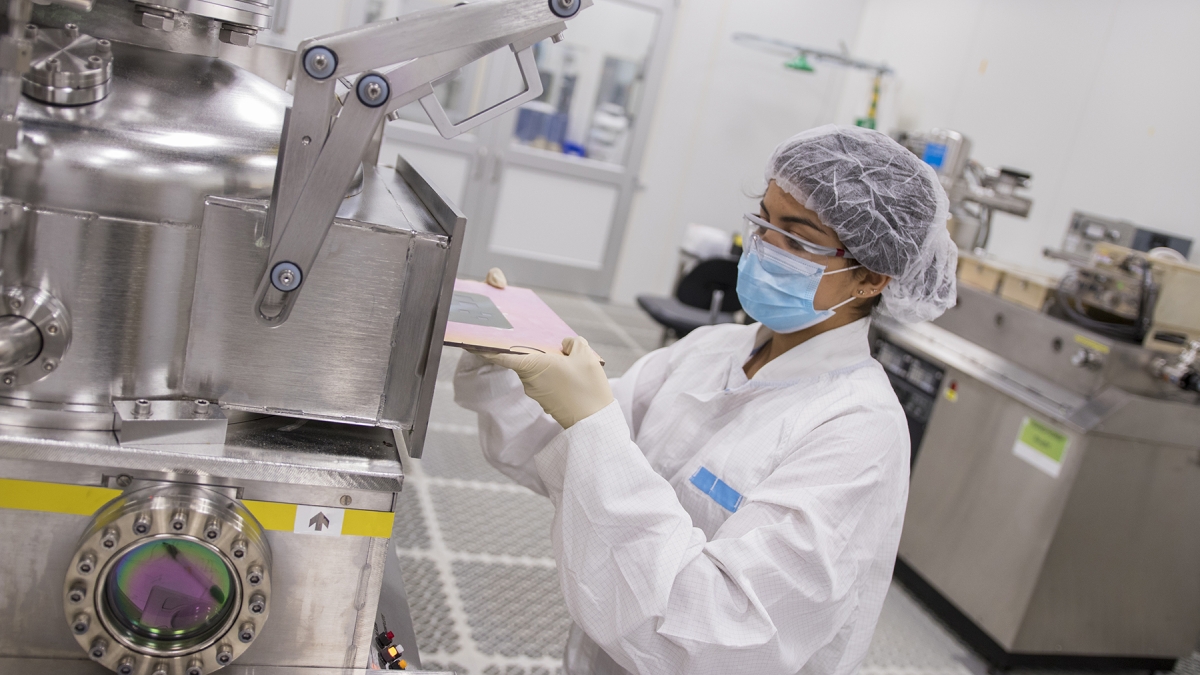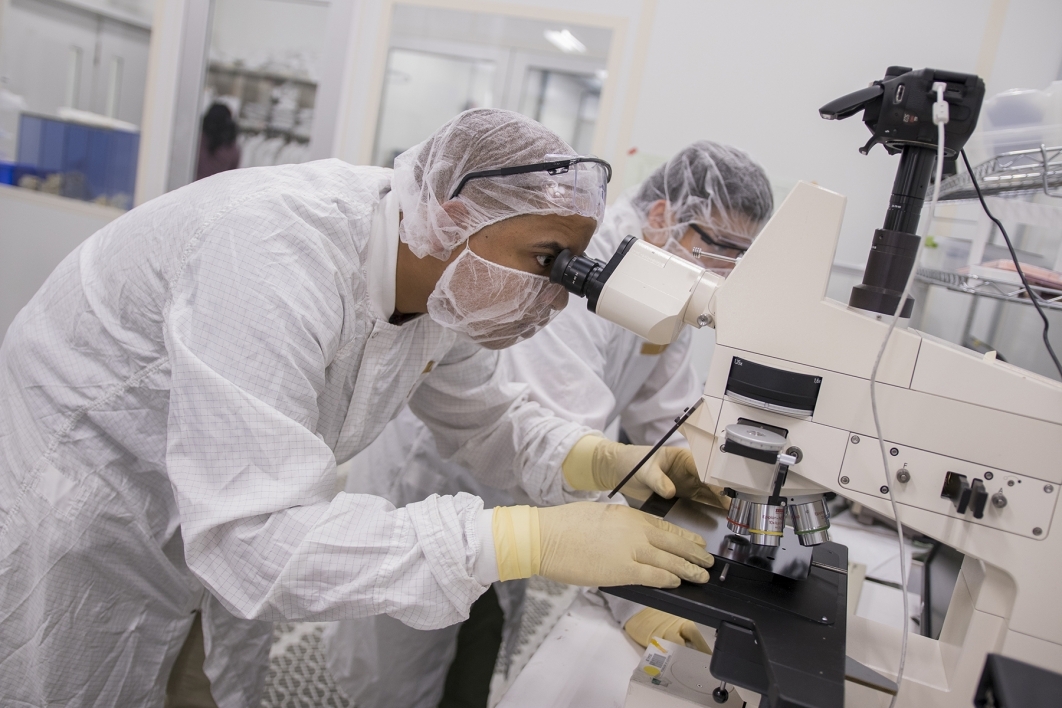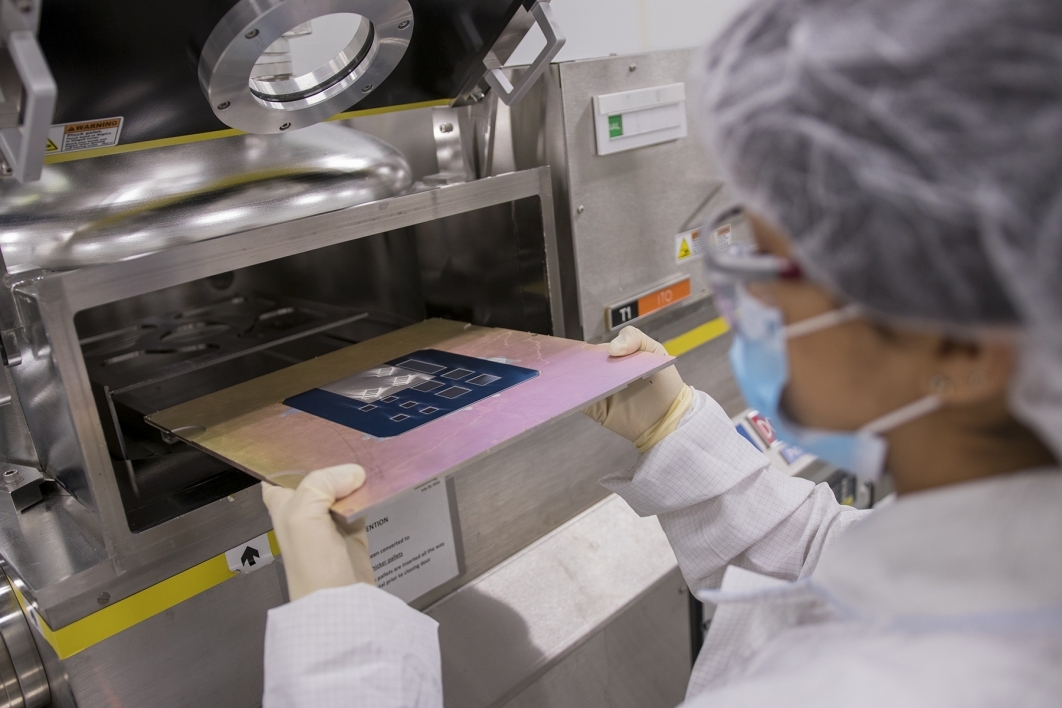A new research project spanning five universities in three countries and led by Arizona State University will work to improve solar cell technology and look into new uses for photovoltaic devices.
ASU’s Quantum Energy and Sustainable Solar Technologies (QESST) Engineering Research Center will take the lead in the collaborative project to advance photovoltaic technology and applications. The partnership includes the Massachusetts Institute of Technology’s MIT Photovoltaics Research Laboratory; the I-Form Advanced Manufacturing Research Centre at Dublin City University (DCU); the Tyndall National Institute’s (Cork) Irish Photonic Integration Center (IPIC); and Ulster University’s Nanotechnology and Integrated Bio-Engineering Center (NBEC).
“This project speaks to ASU’s ability to bring together key partners to advance an innovative technology and develop meaningful, scalable strategies for effective deployment,” said Sethuraman “Panch” Panchanathan, executive vice president of ASU Knowledge Enterprise. “The research center provides a platform for promoting transdisciplinary work among prominent scientists and researchers, and will explore technologies with the potential to address global grand challenges.”
I-Form at DCU will provide expertise in additive manufacturing and 3D printing, including the fabrication and testing of solar cell devices at ASU’s Solar Power Laboratory, to demonstrate low-cost solar cell manufacturing. The integration of I-Form’s quality by design nanocolloid production and additive manufacturing capabilities with the latest material development for the next generation of solar cell production provides an exciting new opportunity.
NBEC and ASU will integrate advances in nanoparticle plasma deposition technology into photovoltaics technology for new thin film applications.
Finally, IPIC’s success in nano- and microphotonics will combine with MIT’s research to integrate small solar cells into indoor "internet of things" sensors and wearables. Converting indoor lighting into electrical power with solar panels will reduce the growing need for extended battery life for devices that don’t have access to sunlight.
“Photovoltaics is a rapidly growing and changing field, not only in its technology but also in its use and applications. Innovative technologies and approaches have helped photovoltaics on its own Moore’s Law-like advancement, with costs declining and performance improving,” said QESST Director Christiana Honsberg. “The collaboration is exciting because it combines advances from new materials and fields, such as additive manufacturing, with those from photovoltaics to achieve both new technologies and transformative photovoltaic applications.”
Cross-center educational opportunities include a student exchange program and the development of web-streamed technology modules on the key technology developments.
Funding partners for the project are the National Science Foundation (NSF) in the U.S., the Science Foundation of Ireland and Northern Ireland’s Department for the Economy.
Top photo: A researcher produces a photovoltaic cell in ASU’s QESST University Research Center. QESST is funded by the U.S. National Science Foundation and the Department of Energy. Photo by Marco-Alexis Chaira/ASU
More Science and technology

Lucy's lasting legacy: Donald Johanson reflects on the discovery of a lifetime
Fifty years ago, in the dusty hills of Hadar, Ethiopia, a young paleoanthropologist, Donald Johanson, discovered what would become one of the most famous fossil skeletons of our lifetime — the 3.2…

ASU and Deca Technologies selected to lead $100M SHIELD USA project to strengthen U.S. semiconductor packaging capabilities
The National Institute of Standards and Technology — part of the U.S. Department of Commerce — announced today that it plans to award as much as $100 million to Arizona State University and Deca…

From food crops to cancer clinics: Lessons in extermination resistance
Just as crop-devouring insects evolve to resist pesticides, cancer cells can increase their lethality by developing resistance to treatment. In fact, most deaths from cancer are caused by the…


